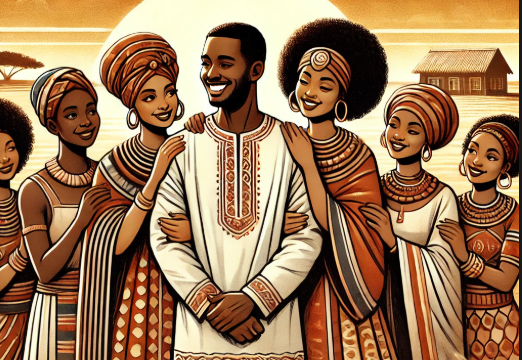

"I am for it," Yegon Kipkemoi said when asked if he would consider polygamy.
According to Yegon, having more than one wife gives a man a sense of royalty.
“I am encouraging polygamy, and it should be understood that such a practice depends on family background. In my case, I have been brought up in a family where I have multiple grandmothers,” he said.
“My granddad did it, so why can’t I?”
Polygamy has long been a topic of debate, with its roots deeply embedded in cultural traditions, religious practices and historical customs.
It refers to the practice of having more than one spouse at the same time.
There are two primary types of polygamy: polygyny, where a man has multiple wives, and polyandry, where a woman has multiple husbands.
Polygyny is the most common form and has been historically practised in
various cultures around the world, especially in parts of Africa, the Middle
East and Asia.
In some societies, it is seen as an age-old
tradition that reflects family values, wealth or status.
For others, it is viewed as controversial and even outdated, particularly in
the context of modern values surrounding gender equality and personal freedom.
It is, however, still being practised despite the many dissenting voices.
Supporters of polygamy argue that it provides
individuals, especially women in some contexts, with a sense of security,
companionship and stability.
In traditional societies where women may not have the same opportunities for
economic independence, having multiple wives can ensure financial support and
social security for them and their children.
In societies where it is practised, polygamy can be seen as a means of
ensuring that all parties involved are supported financially and emotionally,
and it can reflect a mutual agreement between consenting adults.
In some communities, it is also viewed as a way of solidifying political
alliances or preserving family lineage.
On the other hand, critics of polygamy often
highlight concerns over gender inequality, exploitation and the emotional and
psychological impacts it can have on the individuals involved, particularly
women.
Many critics argue that polygamy can perpetuate patriarchal systems where
women are seen as subordinate and that it can lead to unhealthy family
dynamics, jealousy and feelings of neglect.
Women in polygamous marriages often face emotional distress due to
competition for their husband's attention and resources.
The practice is also seen by some as incompatible with modern values of
individual autonomy and gender equality, particularly when a woman has little
say in the arrangement.
Others rely on their religious knowledge.
As for Sarah Wainaina, polygamy is not Bible-oriented, so “why should I
support it?”
She, however, said that as much as she would not enter into the form of
marriage, she is not going to preach to others not to.
“If others are fine with it, then by all means let them do it. But a man
should ask himself a couple of questions before jumping into marrying multiple
women,” she said.
“Are you able to provide? Is there harmony? Such questions.”
Reiterating that marriage should be for one man and one woman, she, however,
adds, “But if it is necessary, do, as long as you provide and care for all
your wives.”
Jack Owino is against the practice, stating that marriage should be intimate
and sacred, for one pair, not multiple women.
“I don't like it. I'm against it because marriage and intimacy are matters
of the heart and are personal,” he said.
“It is not possible for one to be divided unless one is willing to erode the
element of trust. In this case, love is outweighed by trust.”
As for Jimmy Wambui:
“Polygamy is a waste of time. No love can appreciate two people at a go. Love is better served in a monogamous relationship where competition is only about how to love even more.”












